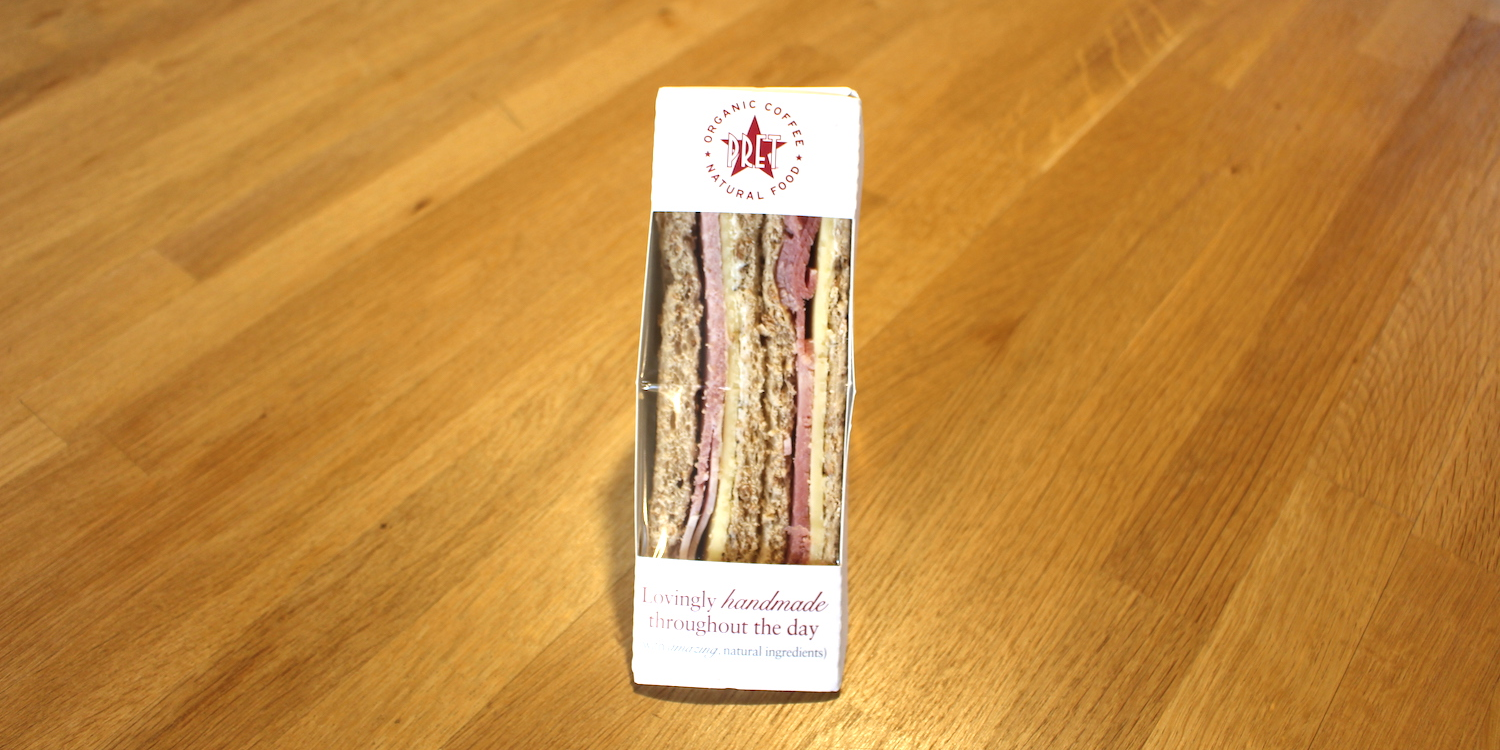- British ad regulators have banned Pret A Manger for claiming in online ads that say food is “natural.”
- The Advertising Standards Agency said this isn’t true, because the sandwich chain uses artificial additives in some of its products.
- Pret uses E-numbers in its granary bread to make it look and taste better.
- Business Insider could not see any mention of the additives in a London Pret store, or on its packaging.
The sandwich chain Pret A Manger has been banned by advertising regulators from claiming its food is “natural” – because it actually uses additives in its products.
Pret was picked up on the false claiming by Britain’s Advertising Standards Authority (ASA). The regulator highlighted online advertising which attacked the use of “obscure chemicals” in food, despite the fact that Pret was using them.
The two ads, which appeared on Pret’s Facebook page and website in December 2016, say:
- “Pret opened in London in 1986. College friends, Sinclair and Julian, made proper sandwiches avoiding the obscure chemicals, additives and preservatives common to so much of the ‘prepared’ and ‘fast’ food on the market.”
- “PRET CREATES HANDMADE NATURAL FOOD… DOING THE RIGHT THING… NATURALLY. In 1986, Pret opened the doors of its very first shop. A shop with a mission. A mission to create handmade, natural food, avoiding the obscure chemicals, additives and preservatives common to so much of the ‘prepared’ and ‘fast’ food on the market today. […] GOOD NATURAL FOOD: Avoiding obscure chemicals and additives common to so much ‘prepared’ and ‘fast’ food.”
The ASA ruled on Wednesday that some of Pret’s food “did not constitute ‘natural’ foods.” It highlighted three food additives (known in Europe as “E-numbers”) used in the bread.
The ruling said: "We considered that because some of Pret A Manger's foods contained E-numbers, which were artificial additives that had been produced by chemical processes, notwithstanding whether the additives were obscure, those foods did not constitute 'natural' foods for the purposes of the [UK Food Standards Agency] Guidance."
The Food Standards Agency says the word "'natural' means essentially that the product is comprised of natural ingredients, e.g. ingredients produced by nature, not the work of man or interfered with by man." It added that it was "misleading" to use the word to describe food that used chemicals.
Pret uses the emulsifiers E472e and E471 in its granary bread. It also uses E300 (vitamin C) to help it rise.
A spokeswoman for the chain said: "These are found in much of the bread sold in supermarkets and on the high street. We would really like to find a solution and our food team has been working hard trialling recipes that do not use emulsifiers. They have not yet found one that meets the standards our customers expect."

Pret does not make it obvious which additives it uses in its sandwiches. Business Insider visited a London branch of Pret on Wednesday morning, and could find no mention of the E-numbers in store or on the packaging of one sandwich.
Pret has since removed the commitment to avoid "additives" from its mission statement, which will likely enable it to get around the ruling.
Pret's spokeswoman told Business Insider in a statement: "Today, the ASA has upheld in part a complaint about our use of the word natural in two instances online. We do, of course, take on board the views of the ASA and have already made the requested changes."
Pret operates more than 370 shops in the UK, and more than 450 shops around the world in cities including New York, Paris, and Hong Kong. The company said the ASA ruling only affects its British branches.

